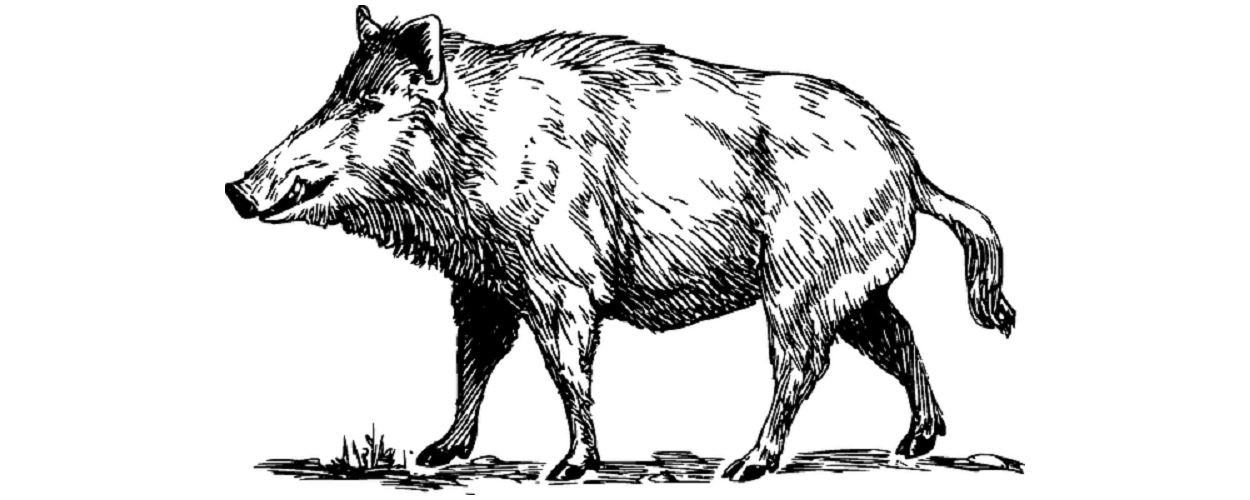I knew finding a short story to fit this month’s theme would be tough. It’s hard enough to choose stories that do the usual high-fallutin’ Prose Dive-y stuff every month as is. But then I came across my story of the month, and I realized I was going about it the wrong way. Rather than talk about a story that makes us laugh, I thought it’d be useful to focus more on how humor is used to show the relationship between the characters.
“Bodies Are the Strongest Conductors” is about two young boys — one frail, the other overbearing. Author James Robert Herndon writes their spoken interactions in a way that feels true to life, a believable way that only well-written childish banter can be. However, it’s the feelings the characters don’t say, the things left unsaid between the joking that resonates most true as a reflection of our culture and society. And that’s the kind of thing that makes it worthy of diving deeper.
The article you are about to read has been heavily SPOILED. For treatment, read the story to completion and apply as a salve directly to your brain.
The Plot
It’s a rainy day when Lumpy comes to visit Nicky, who has been pulled out of school because of the metal in his blood. The two boys pass the time by going through a box Lumpy stole from his dad’s closet, which contains oddities like a container of boot polish and a taxidermied raccoon. Throughout the visit, Lumpy, a crass child who slings insults as his main form of communication, commits several acts of “obnoxious boy things” that make you wonder why the docile Nicky puts up with him in the first place. First Lumpy draws a penis on a graph that Nicky’s mom is using to track the levels of metal in Nicky’s blood, followed by showing off a lewd magazine. All the while, Nicky laughs along and tries to misdirect Lumpy’s macho displays to other things, things that won’t make his mom upset or won’t make him feel uncomfortable or discomforted.
Things escalate when Lumpy pulls out the last of his dad’s treasures: a pillowcase full of pennies. Nicky is highly sensitive to copper — the sound of it, the feel of it, and especially, when he gets dared into swallowing some, the taste too. At this point, everything becomes so unbearable that Nicky lashes out at Lumpy using the stuffed raccoon, then runs out his apartment door and onto the porch, where after a struggle with Lumpy on the other side of the door, he blacks out. Nicky comes to with Lumpy sobbing, asking him not to leave.
“Bodies” is deceptively simple, plot-wise. It can be boiled down to just a few key actions. And it can get away with it because it’s character-driven. It isn’t mucked up with explaining any science or magic; there’s just two boys talking to each other. We’re here only for as long as it takes one of the boys to make a choice, and thankfully for us (and the boys), it’s one that’s cathartic and pulled off wonderfully.
The Characters
The things that happen in “Bodies” aren’t necessarily funny — no, not even the penis-drawing — and that’s mostly because Nicky, our viewpoint character, doesn’t find them funny. He is diminutive where Lumpy is loud, submissive where Lumpy is dominant. He wants to be normal, and Lumpy is the closest definition to normal he has, despite the other boy’s brutish nature. It’s why Nicky wishes Lumpy had brought some sticks so they could sword fight you know, release some of that pent-up boyish aggression; he doesn’t really want to, but it would be better than Lumpy making fun of his mom. He does his best to disarm Lumpy, but for the most part is unsuccessful. The times he does, we feel relief for him, and when his misdirection doesn’t work we feel a share of his anxiety.
Nicky as a first-person narrator is why this story works so well. We hear his internal dialogue and see how at-odds it is with what comes out of his mouth. “‘That’s awesome,’” he says, praising Lumpy for drawing a dick on his wall when he’s really rather repulsed by it. Nicky’s inner thoughts are what make him truly come alive and feel relatable so that when Lumpy brings out the pillowcase full of pennies, we can understand why Nicky feels the pain is worth this awful boy’s companionship. “‘I didn’t want to die,’” is his thought at first, followed by ‘“I didn’t want to be alone.’”
Lumpy is a model bully, so full of adolescent machismo you could criticize author Herndon for laying it on too thick. But then, lots of boys act that way, and Herndon captures that here. Lumpy has the added misfortune to have a parent who nurtures this kind of behavior, helping to usher in the next generation of insensitivity. It’s not necessarily mean-spirited, it’s just what he observes. Lumpy walks this fine balance of “earnestly terrible” and “boys will be boys,” so it’s kind of hard to make assumptions beyond what we actually see in the text. What we do know is that Lumpy’s father is the one reinforcing his kid’s shitty behavior, and the kid is carrying the torch.
The boys’ relationship is tenuous, filled with questions like “why does Nicky hang out with Lumpy?” Surely, he’d be better off without. But for Nicky, Lumpy is more than just the only person he calls a friend; that’s important enough. What Nicky really wants is to be like Lumpy. He wants to be strong enough to withstand the metal in his blood, and say whatever he wants. In his own words, “I wanted to be stronger, louder, and tougher in front of the world than I was in my skin. I wanted that superpower.”
Another good question is “why does Lumpy hang out with Nicky?” Surely, someone more his style would make for a better playmate. Except that Lumpy is just as alone as Nicky is, but unlike Nicky, uses his health and strength to push other kids away. When Nicky recounts details about Lumpy, we see that all Lumpy does is either antagonize other kids or mimic his father’s prejudices. These are often one and the same, as in the case of calling kids “Princess” while he pokes them in their asses with sticks. Lumpy hangs onto his friendship with Nicky because no other kid will have him. They’re two boys looking for belonging from their physical and mental opposites.
The Humor
“Bodies Are the Strongest Conductors” isn’t a funny story. Like, at all. Lumpy slings insults with reckless abandon, and Nicky either parrots him or tries to get him to talk about something else, depending on how brave he feels. Nicky’s reactions to Lumpy’s remarks should resonate for anyone who’s ever heard an inappropriate outburst from someone they care about. He reacts in a way that supports his submissive nature — he laughs along and agrees. So long as Lumpy doesn’t escalate his anger, Nicky can deal with a little berating.
The contradiction of Nicky’s inward feelings against his outward reactions feels authentic. When Lumpy vandalizes the graph of the wall, Nicky’s reaction of “that’s awesome” is in direct opposition to his inward feelings, his “roiling” stomach. If you notice how often you say one thing but actually think another, you’ll see how true to life this reaction really is. Especially where humor is concerned (which tends to be subjective), it’s a common reaction to laugh along to feel like you belong, or at the very least not hurt the other’s feelings. With Nicky, this is an even more powerful reaction, as he isn’t afraid he’d hurt Lumpy’s feelings — Lumpy of all people! — but more so that he doesn’t want to paint an even bigger target on himself by pointing it out.
Humor is used as tension in this story. Nicky sees the humor as antagonizing, even dangerous; he must appease Lumpy or risk physical and mental harm. Lumpy uses humor as a weapon, a weapon that he keeps using with the knowledge that it could backfire, ending in the loss of his friend. Both characters tiptoe around each other, trading remarks that they supposedly find humorous and that the audience should find detestable (if for any other reason than the protagonist feels that way), and it is watching this dance that makes “Bodies” such a compelling story.
The Takeaway
This story isn’t as sci-fi as I’d like — I’ve always wanted to highlight the leaps that modern genre fiction is taking — but it does have some useful commentary on male gender roles that is very much in line with what I’m trying to accomplish with your monthly dose of the ‘Dive. So while I can excuse the “metal in the blood” element of the story as a “lite beer” sci-fi means for these characters to talk to each other, it’s all in favor of doing something more to our benefit.
Ultimately, this is a story about two boys. Let me rephrase that — it’s a story about two friends, and the solace they end up finding in each other. Even though Lumpy is loud and mean and awful, and even though Nicky is weak and frail and diminutive — they are driven to each other out of a mutual sense of need for friendship. That’s a pretty universal concept that has taken a lot of forms over the years — opposites attract, and all. And in this case, I couldn’t be happier that they did.








